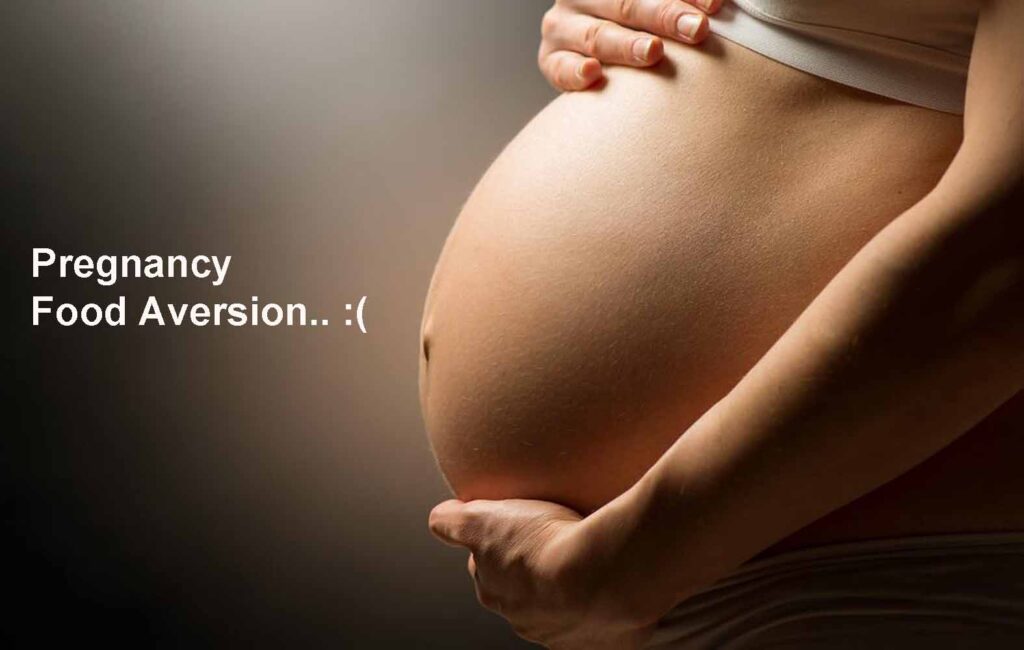What Does Food Aversion Mean?
Food aversion is an intense dislike of a specific food with some unpleasant symptoms when you see or smell the food. Many pregnant women experience food aversion to some specific foods which they used to love before pregnancy and that is absolutely normal. Pregnancy food aversion is one of the most common pregnancy symptoms just like food cravings. One can have any kind of food aversion. During pregnancy it varies from person to person. Many women experience aversion to strong smelling foods like Garlic, Onion, Eggs, Milk, and Meat, Tea or Coffee and some experience aversion by only seeing or tasting the food.
What Causes Food Aversion?
You must be thinking what causes this food aversion during pregnancy?
It happens just because of hormonal changes. One of them is Pregnancy hormone. This can be found in urine and blood around 10 to 11 days after the conception. This supports pregnancy and it increases very quickly, almost doubles up in every 3 days during the 1st trimester of pregnancy. It helps your body to create estrogen and progesterone and together these 3 hormones thicken your uterine lining to support your growing baby. Rapidly rising level of pregnancy hormone may cause nausea, cravings, and food aversions. This continues to rise till 10th to 11th week in pregnancy.
Changes in hormones also make your taste buds more sensitive. Your sense of smell also gets more sensitive and strong smells can become overpowering. Hormonal changes also increase saliva production which gives your mouth a metallic taste, this is also one of the reasons to develop dislikes on certain food items. Food aversions also can be associated with morning sickness. During pregnancy your body may not want to consume foods which are bad for your health and for the same reason foods like alcohol and coffee, once you liked so much, have now become unpleasant to you. Furthermore, your body also can avoid foods which are good for you. Food aversion and nausea are the early signs of pregnancy. Pregnant women who experience food aversions, tend to have fewer chances of stillbirth, miscarriages and premature birth.
When Do Food Aversions Start in Pregnancy?
Food aversions in early pregnancy are normal for women. Many pregnant women experience food craving and food aversions at same time. As per a study published in an article of NCBI, this has been observed that seven-in-ten (69.2%) of the pregnant women develop at least one food aversion at some point of time during pregnancy. It usually occurs during the 1st trimester. However you can feel food aversion at any point of time during pregnancy. So, because of this if you cannot have the food which is important for your health then you can try it later but if your nausea prevents your body from having enough nutrition and losing weight for this then you should consult with your doctor.
When Do Food Aversions Stop in Pregnancy?
You must be thinking that do food aversions last for the entire pregnancy? Well, the answer is not specific, as this depends a lot on the Pregnancy hormone level. Typically, food aversions go away in the 2nd trimester when the Pregnancy hormone level starts getting lower however, sometimes food aversions last throughout the pregnancy. If you are experiencing severe aversion throughout your 2nd and 3rd trimester then maybe you are not getting enough nutrition and you need to consult with your doctor. The pregnancy hormone level drops after delivery to such a level that it will not get detected through urine or blood tests. Because of this food aversions don’t last forever. It disappears after the baby arrives however, there is a possibility that the food aversion may happen after delivery as well.
Common Food Aversions
Below is the list of most common pregnancy food aversion:
- Milk
- Egg
- Tea/Coffee
- Onion
- Meat
- Garlic
- Spicy Food
- Fatty Food
- Alcohol
- Fish
- Enset
- Cereal
Do Food Aversions Change During Pregnancy?
Apatite changes which are normal during pregnancy. Certain foods which you loved the most before pregnancy are now dull to you. Any new food aversion can develop at any point of time during pregnancy. If you cannot have any particular food which is important for your health then you can try to have it later because food aversion changes from time to time.
Food Aversions and Nausea

Strong dislike of certain foods called food aversion and the taste or smell of that food causes coughing, nausea or vomiting. Food aversion symptoms vary from person to person. Some pregnant women face mild food aversions and some show severe aversion to certain foods which lead them to nausea. Nausea or you can call it morning sickness is a common thing during the early months of pregnancy. It is ok to avoid foods which you don’t want to eat until you replace them with another nutritious food. But if your food aversion causes severe nausea or vomiting and because of this you are not able to maintain a balanced diet then you must consult with your doctor.
How to cope with food aversion during pregnancy
We all know pregnancy food aversion is normal now for pregnant women, so now you must be thinking that if the food aversion is normal then what is the way to cope with this situation?
Here are some tips to cope with Pregnancy food aversion:
Stay Hydrated
Hydration is very important during pregnancy. You can have any kind of beverage during pregnancy which is good for your health like Popsicles, soups, and high-water fruits and vegetables or drinks with high vitamin and minerals.
Small And Frequent Eating
Try to eat several small meals throughout the day. It will help you to fight with nausea. If you are staying without food for long hours then it will trigger nausea.
Have Mild Tasting Food
Try to have foods which you can tolerate. Plain and mild testing foods like noodles, rice, yogurt, beans are well tolerated foods to deal with food aversion. Other foods like avocados and sweet potatoes are also mild tasting and easy to digest.
Stay Physically Active
Moving your body throughout your pregnancy is very good. It helps stimulate an appetite. Take a walk, do yoga or find any activity that you can enjoy.
Have Cold Foods
Some pregnant women find it easier to eat cold foods because warm foods have a stronger smell than cold foods and can cause more nausea and aversion.
Hide Your Food Aversion
You can hide your food aversion by mixing them with other foods which you can eat. For example blending spinach into a fruit smoothie.
Know Your Substitutes
During the period of pregnancy food aversion you may not like to have many foods, so figure out which foods can be equivalent substitute to those foods then food aversion will not be a problem for you.
A list of substitute food items has been provided below which will help you to balance the nutrition that your body requires in pregnancy.
Aversion to Egg and Meat
Substitute – Tofu, Nuts, Cheese and Nut Butter
Aversion to Milk
Substitute – Yogurt, Spinach, broccoli and Cheese
Aversion to Onion and Garlic
Substitute – Herbs such as rosemary, basil
Aversion to Tea or Coffee
Substitute – Homemade fruit juice and lemonade
Aversion to Fish
Substitute – Ground Flax seeds and nuts
Aversion to beef
Substitute – Whey based smoothies
Aversion to Chicken
Substitute – Bone or Vegetable Broth
Final Thought:
Pregnancy food aversion and craving both are very common and normal during pregnancy. So no need to worry about these. Just listen to your body throughout your pregnancy especially when it comes to food. It’s ok to avoid foods which you don’t like to eat as long as you are getting enough calories and nutrients from other foods to stay healthy.
For more information on health and wellness please visit our Blogposts.

